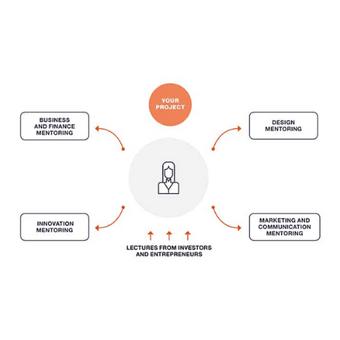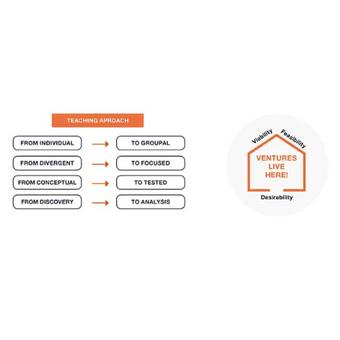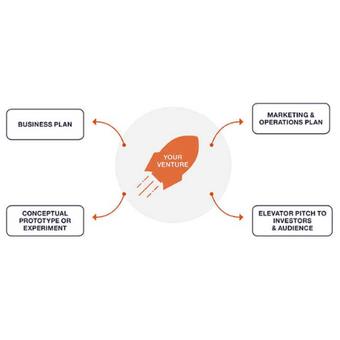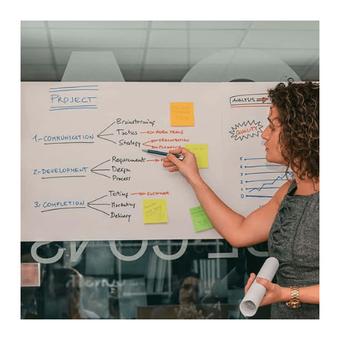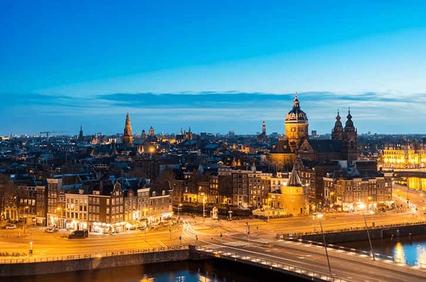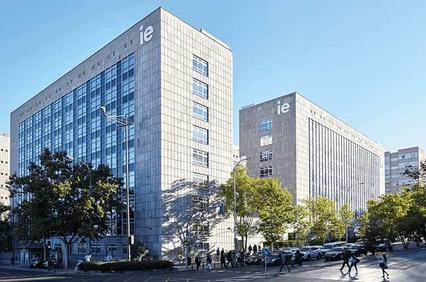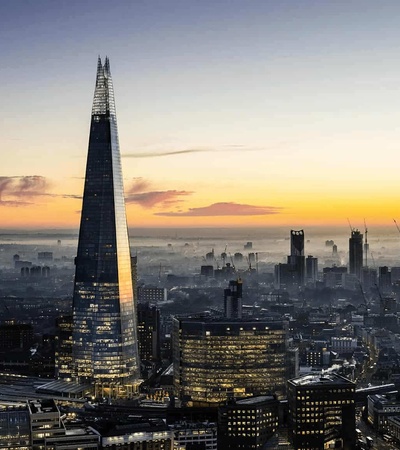
Master in Business for Architecture and Design
Master in Business for Architecture and Design
COVER ALL YOUR BASES
COVER ALL YOUR BASES
This in-depth, comprehensive program covers everything from the big picture to the nuanced details of architectural management and design.
It focuses on four fundamental aspects: business management, leadership, entrepreneurship, and design innovation and technology.
The program has been developed to help transform individuals into multifaceted professionals through practical, hands-on learning.
Students apply the knowledge they gain throughout the program to real-world situations in the Venture Lab, and finish the program with an entrepreneurship-focused thesis project.

WANT TO KNOW MORE?
EXPLORE THE Master in Business for Architecture and Design program
EXPLORE THE Master in Business for Architecture and Design program
- Description
- Modules
- Modules
- Description
- Modules
*Please note that our program content is continually updated to remain in sync with market demands. Therefore, we advise you that the content is subject to change and it can be dependent on student demand.
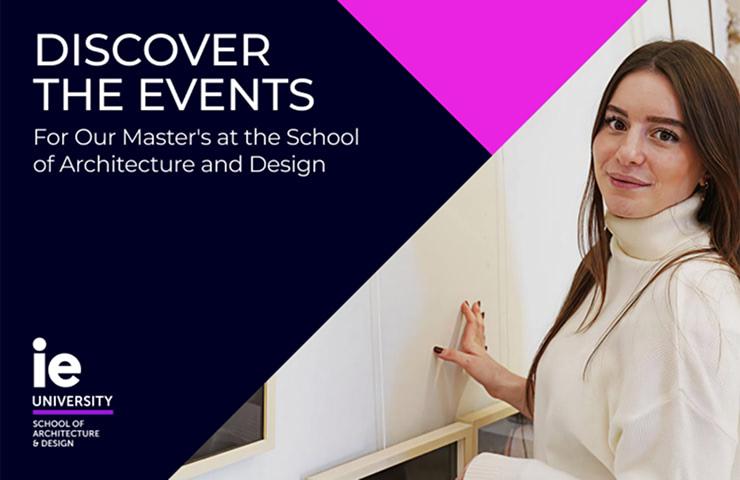
THE ULTIMATE GUIDE
THE ULTIMATE GUIDE
All you need to know about our School of Architecture and Design events
DEVELOP YOUR BUSINESS ACUMEN WITH OUR MASTERCLASSES. LEARN FROM PETER MURRAY.
DEVELOP YOUR BUSINESS ACUMEN WITH OUR MASTERCLASSES. LEARN FROM PETER MURRAY.
ACADEMIC CURRICULUM
ACADEMIC CURRICULUM
The contents of the four modules are introduced through cases, workshops and discussions, which focus on a wide range of domains related to the built environment.
The transversal curriculum and the course dynamics allow to establish links between the modules, the Venture Lab and the Business of Design Forum. You will put into practice all the contents explored along the program, and confront the conceptual dimension of learning with the hands-on experience of the labs and workshops, similar to real-life working environments.
The MBArch blends online sessions, face-to-face periods in Madrid and Amsterdam, and a professional post-graduation trip to London.
Online weeks start with Monday to Thursday forums, followed by Friday Entrepreneurship Mentoring and Lectures, and Saturday videoconferences from professors. All activities involve group and individual work, that is closely followed-up by faculty and mentors. The four full-time residential weeks in Madrid and Amsterdam combine classes, workshops, entrepreneurship sprints, company presentations, visits, lectures and group work. It is a unique opportunity to network and discuss lessons learned with industry leaders.
BUSINESS OF DESIGN FORUM
BUSINESS OF DESIGN FORUM
Venture Preparation is a hands-on introduction to the practice of entrepreneurship, comprised of venture design sprints, lectures, and workshops ranging from idea generation to team building.
In the second half of the program, students participate in the Venture Lab: an entrepreneurship workshop that guides them in developing their own projects, with the mentorship of expert faculty.
Students’ projects will become their Final Theses, which are then presented in front of a jury of experts and investors. This experience in entrepreneurship is the capstone of the master program.
VENTURE PREP AND VENTURE LAB
VENTURE PREP AND VENTURE LAB
- 1
Program Key Points
Program Key Points
LIVE VIDEO CONFERENCES
On Saturdays from 2:30 p.m. to 7:30 p.m. (CET) students participate in live online video sessions led by professors.
IE’s online platform allows for seamless participation, conversation, and an interactive course flow.
ONLINE FORUM
Ongoing online conversations are held from Monday to Thursday. Students engage in thoughtful and lively class discussions via online posts that can be published at any time of day, allowing those with busy schedules great flexibility.
Professors moderate and encourage students to delve deeper into the topics covered in class.
INDIVIDUAL PREPARATION
All syllabi, bibliographies, cases, and other curricular materials are posted ahead of time on our online platform “Campus Online.”
Assignments and readings are thoughtfully scheduled to allow for an appropriate workload. You can organize your time to fit your needs.
GROUP DISCUSSION AND ASSIGNMENTS
Students are divided into groups, and work on collaborative assignments throughout the program.
Group work, both face-to-face and online, is a fundamental element of the learning experience.
IE ONLINE CAMPUS
The IE Online Campus is a web platform that allows students to access all of the program’s online activities any time they wish from any location.
The campus is also accessible from smartphones and tablets.
A TYPICAL ONLINE WEEK
A TYPICAL ONLINE WEEK
LECTURES & WORKSHOPS
More than 20 lectures and workshops are held with professors and leading companies, to delve deeper into the academic content or expand on the work done in class. We also conduct Makeathons: one or two-days business design sprints in which groups address a given challenge, define opportunities and develop potential solutions.
FIVE SESSIONS PER DAY WITH INTERNATIONAL FACULTY
Students have a wide variety of courses from Monday to Friday in different settings. Classes are interactive and include case discussions, team presentations, specific visits and guided group work.
GROUP WORK & PRESENTATIONS
You will discuss and prepare a series of assignments and projects in group, and present them to professors, companies, juries, and peers. Group work is essential to expand and deepen the lessons from different courses.
VISITS AND DISCUSSIONS
The F2F sessions include discussions at leading companies and startups in architecture & design, communication, real-estate, project management, and technology. Visits contribute significantly to illustrate concepts and acquire a wider perspective of reality.
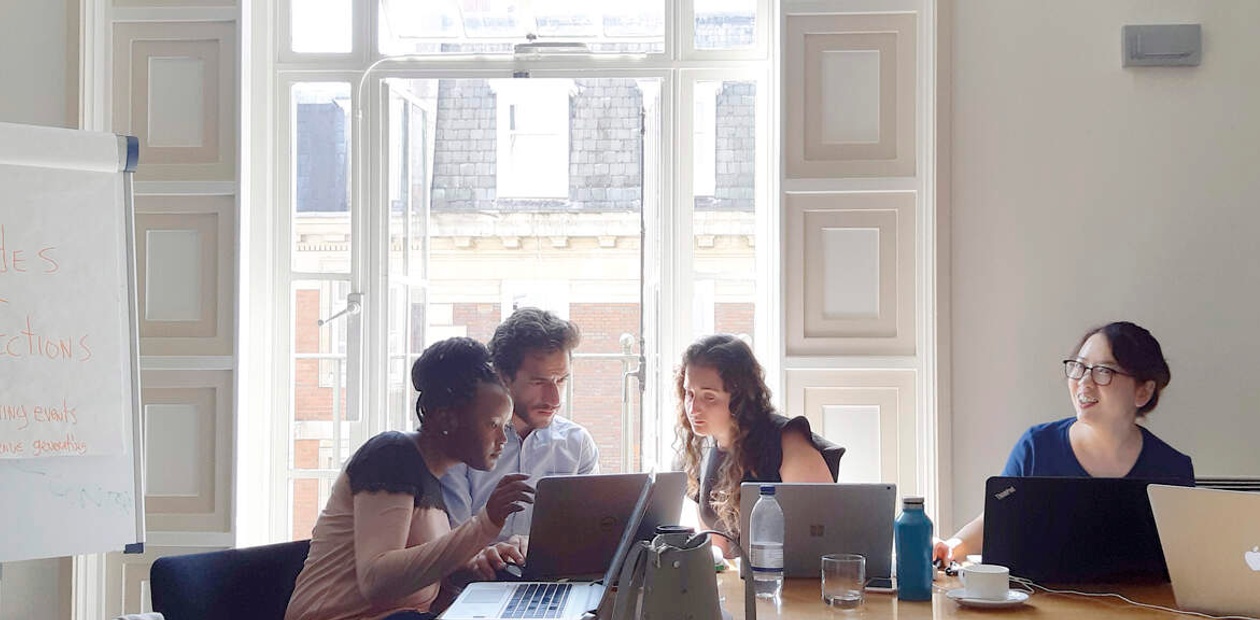
WHAT ARE THE FACE-TO-FACE SESSIONS?
WHAT ARE THE FACE-TO-FACE SESSIONS?
These are intense periods of the program in which you spend time with peers and professors in either Madrid or Amsterdam. The F2F weeks feature program components that are best suited to classroom and workshop settings. They serve as key opportunities to build strong relationships, exchange ideas and collaborate. Being together is also a great way to advance personal projects, such as the Venture Lab, through formal and informal discussions with classmates and professors.
OUR LEARNING EXPERIENCE: INNOVATIVE AND FLEXIBLE DESIGN, COMBINING ONLINE AND FACE-TO-FACE PERIODS
OUR LEARNING EXPERIENCE: INNOVATIVE AND FLEXIBLE DESIGN, COMBINING ONLINE AND FACE-TO-FACE PERIODS
The MBArch is a 15 months blended program that combines face-to-face learning with interactive online periods. This allows students with demanding schedules to continue to study remotely without disrupting their professional commitments. The perfect balance between teamwork, weekly classes and videoconferences not only ensures almost daily contact among participants, but also reflects the way companies in a global environment operate in the modern world.
FIRST PERIOD
March, 2 weeks in Madrid at the beginning.
SECOND PERIOD
October, 2 weeks in Amsterdam.
THIRD PERIOD
July, 1 week in Madrid at the end of the program, which includes your graduation ceremony.
MODULES OF THE PROGRAM
MODULES OF THE PROGRAM
Module 1: Management
ECONOMIC ENVIRONMENT
Introduction to the macroeconomic and microeconomic environment in business. You will learn to analyze the implications of economic situations and policies on the welfare of people, companies and governments.
FINANCIAL PLANNING
Comprehensive overview of corporate financial planning and decision-making. You will learn to align financial targets with strategy and to start, finance, expand, monitor or present design companies to investors.
STRATEGIC MANAGEMENT
The strategic mindset and competitive behavior that affect performance in businesses. You will learn tools and concepts to analyze industries and firm resources and adapt to current and future market situations.
MARKETING MANAGEMENT
A general approach to contemporary marketing for the built-environment. You will study differentiation, segmentation, positioning, marketing mix or customer satisfaction, as well as business development strategy.
OPERATIONS MANAGEMENT FOR DESIGN
Excellence in design requires balancing economic viability, technical and commercial requirements, and client demands. You will learn to control the resources needed to perform design and construction activities.
PROJECT MANAGEMENT
Designing the built environment implies managing relationships and processes with clients, stakeholders, public organizations, collaborators, contractors and suppliers. You will learn to manage them as a project leader.
Module 2: Innovation & Technology
VALUE CREATION THROUGH DESIGN
You will explore the multiple ways in which spatial design can create value for society nowadays. We analyze perspectives from business, communication, architecture, innovation, entrepreneurship, anthropology and technology.
DIGITAL TRANSFORMATION
Key digital systems and business models affect and empower design nowadays. You will familiarize with cloud computing, blockchain, platforms or bigdata, gaining capacity to pursue technology-enabled businesses.
BIM FOR DECISION-MAKERS / TECHNOLOGY MANAGEMENT
The “digital era” has changed the built-environment. BIM and Technology Management analyze the appropriate adoption, use and management of production technology, that is essential to the success of design companies.
DESIGN INTELLIGENCE
We explore the changes in spatial design since the advent of computational technology, and explore ways to utilize them to transform our companies, taking strategic and technology-based business and design decisions.
SERVICE DESIGN FOR THE BUILT ENVIRONMENT
Designing an efficient service delivery strategy is critical for customer experience /commercial success. We explore how this requires specific business operations, and how aligning both can empower sustainable company models.
Module 3: Leadership
LEADERSHIP AND COACHING
A broad overview of Human Resources, focused on how to structure unique, people-centered and creative companies to get the best out of a team, keeping motivation at the top.
SOFT SKILLS LAB
A series of workshops and seminars that develop student’s personal skills, focusing on their abilities for team work, presentation and communication, which remain central to all the courses and labs of the program.
PERSONAL STRATEGY FOR DESIGNERS
Students create a Development Plan and learn to balance their personal and professional goals. We cover self-organization, social relationships, and how to market oneself to become increasingly relevant.
DESIGN COMMUNICATION & STRATEGY
Branding, marketing and communications empower design practices to meet their goals. We look at the relationship between the market, the marketing process and the architectural strategies that particular firms pursue.
HUMAN RESOURCES IN CREATIVE COMPANIES
A broad overview of Human Resources, focused on how to structure unique, people-centered and creative companies to get the best out of a team, keeping motivation at the top.
Module 4: Entrepreneurship
ENTREPRENEURIAL MANAGEMENT
We examine the mindset, methods and managerial activities of contemporary entrepreneurship. You will learn to frame problems as business opportunities and to generate, validate and present compelling new ventures.
NEGOTIATION & DECISION MAKING
The “art of negotiation”, understood as an effective tool for your professional career and personal life. You will learn to prepare for negotiations, achieve objectives and reach win-win agreements.
RESPONSIVE ORGANIZATIONS
Uncertainty and change are omnipresent in the current era. We focus on how to structure or transform companies to respond to them, gaining leadership and utilizing vision, agility, collaboration and resilience.
MANAGING DESIGN BUSINESSES
An exploration of spatial design management. Students learn about building a unique culture of design, company reputation and development, multidisciplinary teams and to build a clear and powerful design vision.
LAW FOR DESIGN ENTREPRENEURS
We examine the most important and contemporary legal aspects that empower businesses in the built environment realm. Key ideas involve intellectual property, founder agreements, technology law or professional liability.
LABS
VENTURE DISCOVERY LAB
A hands-on introduction to the practice of entrepreneurship, focused on discovery. This central piece of the program is comprised of MAKEATHONS, seminars and workshops ranging from idea generation to team building.
VENTURE LAB
Entrepreneurship workshop. You will develop a design-based company as your program’s Final Thesis. During this process, you will be mentored by faculty, expert advisors and other entrepreneurs.
FORUMS
BUSINESS OF DESIGN FORUM
Up to 30 lectures and visits to prominent design and innovation companies. We discuss directly with their leaders, who share their journeys and insights about how to drive impact and transform the design realm.
FAQs
FAQs
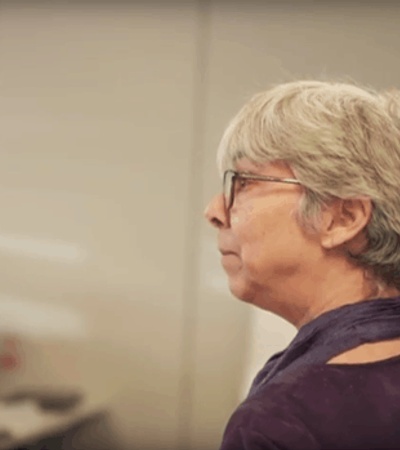
What is Introduction to Design Management About?
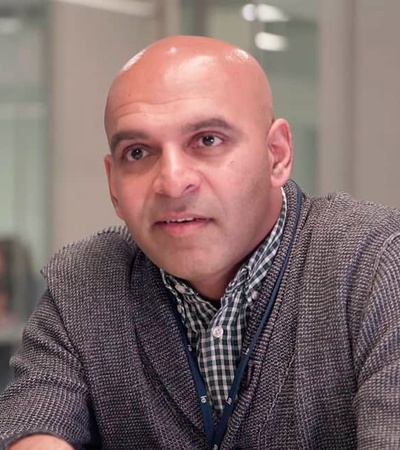
What is Virtual Collaboration About?
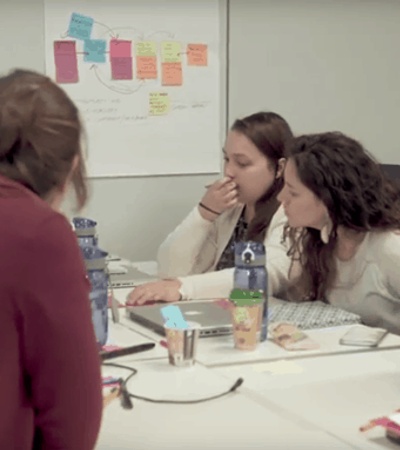
What is Entrepreneurial Management About?
